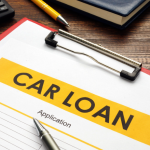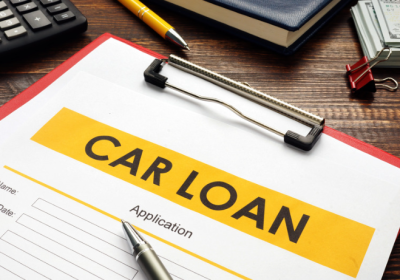Documentation Requirements for Low Doc Car Loans: A Simplified Guide
Have you ever found yourself puzzled over the maze of loan documentation required by traditional lenders? If you’re self-employed or run a small business in Australia, securing a car loan can feel like assembling a jigsaw puzzle without the picture on the box. Enter low doc car loans – the financial products designed to simplify your borrowing journey. But what exactly do you need to gather to get approved? Let’s demystify the documentation requirements for low doc car loans.
Understanding Low Doc Car Loans
Low doc (low documentation) car loans are tailored for individuals who might not have regular payslips but still need to finance a new vehicle for personal or business use. These loans cater especially to freelancers, contractors, and small business owners.
Why Choose a Low Doc Car Loan?
Imagine you’re a freelance graphic designer. Your income streams are as varied as the projects you undertake, making traditional proof of earnings a challenge. Low doc car loans are designed for people just like you, enabling you to provide alternative evidence to verify your financial standing.
Key Documentation Requirements
Though ‘low doc’ implies fewer documents, it doesn’t mean ‘no doc’. You still need to provide certain types of proof to secure a loan:
1. Proof of Identity
A valid driver’s license or passport is a must. It’s like showing your ticket at the start of a race, confirming you’re the one who’s actually running.
2. Proof of Income
This is where low doc car loans differ significantly from traditional loans. Instead of payslips, you might need to provide:
- Bank Statements: Usually, the last six to twelve months. These are your financial footprints, showing the trails of income and expenses.
- Business Activity Statements (BAS): If registered for GST, quarterly BAS for the past year can help demonstrate your business turnover.
- Accountant’s Letter: A certified statement from an accountant verifying your income.
3. Credit History
A recent credit report will be essential. It’s like your financial CV, outlining past loans, repayments, and any hiccups along the way.
4. Details of Your Business
If applicable, you’ll need to provide:
- Business Registration Details: Like showing a membership card, proving your business is legitimate and recognized.
- Recent Tax Returns: While not always required, they can bolster your application by providing a snapshot of your financial health.
5. Asset and Liability Statement
A list of your current assets and liabilities helps lenders gauge your net worth and financial resilience.
How to Prepare Your Documentation
Gathering your documentation can be as crucial as the documents themselves. Here’s how to streamline the process:
- Stay Organized: Keep your financial documents updated and in one place. Think of it as preparing your toolbox before starting a repair job.
- Check Requirements Regularly: Lender requirements can change. It’s like checking the weather before sailing – you need to know what conditions you’re heading into.
- Use Technology: Digital tools can help you track expenses and income, making it easier to compile necessary reports and statements.
Common Misconceptions
- “No Documentation Needed”: Low doc doesn’t mean zero documents; it means simplified documentation.
- “Only for the Desperate”: These loans are a legitimate choice for savvy business people with non-traditional income structures.
FAQs About Low Doc Car Loan Documentation
Q1: Can I apply for a low doc car loan without an accountant?
- A: Yes, while an accountant’s letter can be helpful, you can also use other forms of documentation like bank statements or BAS if you’re GST-registered.
Q2: How recent should my financial documents be?
- A: Most lenders require documents from the last 6-12 months to ensure they reflect your current financial situation.
Q3: Is there a higher risk of rejection with low doc loans?
- A: Not necessarily. If you provide the required documents and they show a stable financial status, your application can be as robust as any other.
Q4: Can I secure a low doc loan with a poor credit history?
- A: It can be challenging, but some lenders specialize in loans for those with less-than-perfect credit scores. Expect higher interest rates as compensation for the increased risk.
Q5: What if I am newly self-employed?
- A: You might face more scrutiny or need a larger down payment to offset the lender’s risk due to the lack of long-term financial data.
Navigating the world of low doc car loans doesn’t have to be a solo journey through uncharted waters. With the right preparation and understanding of what’s required, you can sail smoothly through the application process. Remember, the goal is to provide enough evidence to convince lenders that you’re capable of managing the loan, despite the unconventional proof of income. Equip yourself with the necessary documents, and you’re ready to take the next step towards securing your new vehicle.
Sources
For further reading and to verify the data mentioned, please visit:
Read more about low doc car loans in Australia
- How to Qualify for a Low Doc Car Loan?
- Comparing Lenders: Where to Find the Best Low Doc Car Loans in Australia
- FAQs related to low doc car loans in Australia
- Understanding Interest Rates on Low Doc Car Loans: What You Need to Know
- Documentation Requirements for Low Doc Car Loans: A Simplified Guide
- Strategies for Managing Repayments on Low Doc Car Loans in Australia
- The Impact of Credit Scores on Low Doc Car Loan Approvals
- Refinancing Low Doc Car Loans: When and How to Consider It









